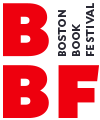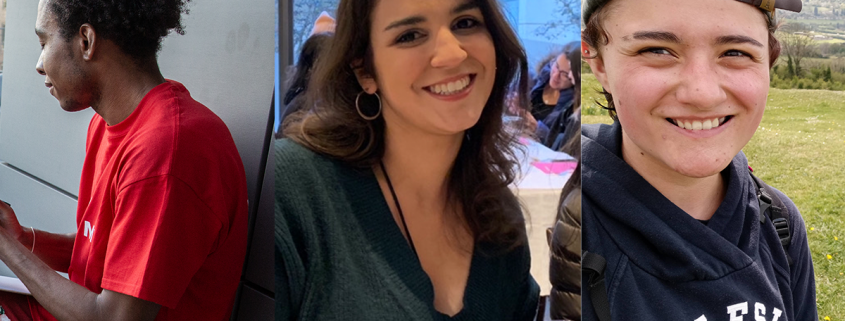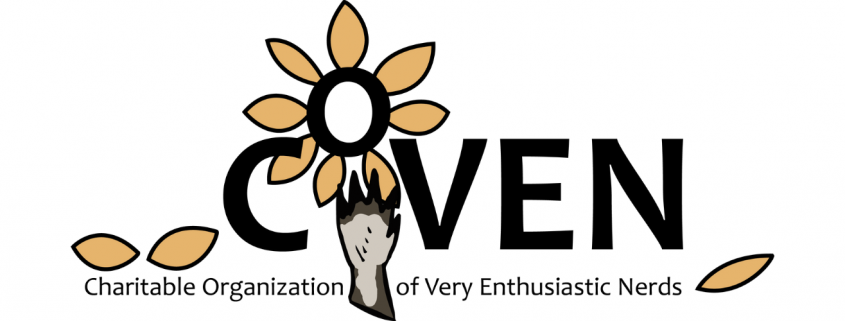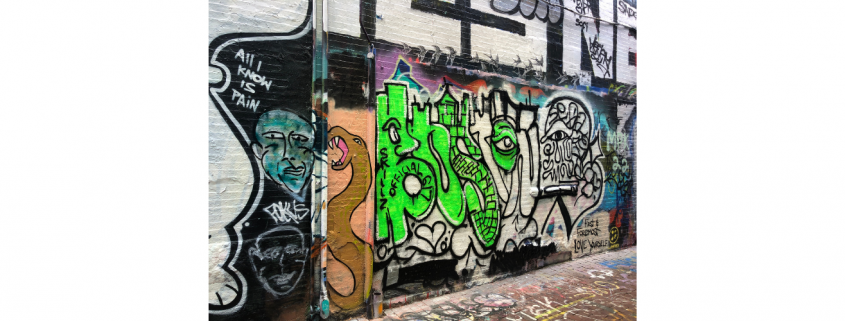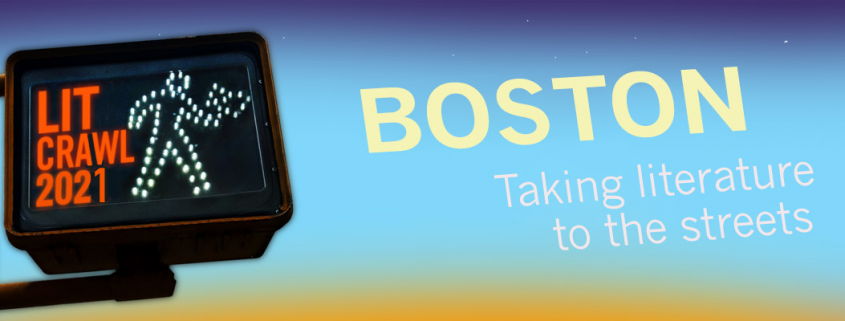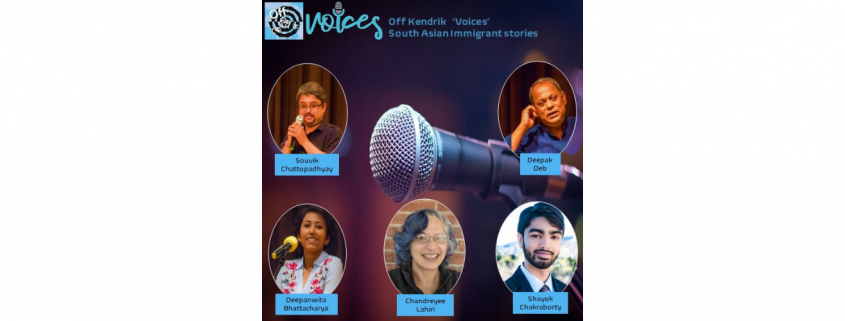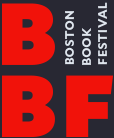BBF 2021: Meet the Interns
If you attended Lit Crawl Boston last week, you might have met one of our three fabulous 2021 interns without even realizing it. If not, here’s your chance to get to know three of the smart, capable folks hard at work behind the scenes here at BBF HQ. Edward, Cristina, and Molly (L–R above) are excited to help bring BBF 2021 from vision to reality—and we couldn’t do it without all that they do!
Intro:
Cristina, born and raised in Puerto Rico, is currently pursuing her master’s degree in publishing and writing at Emerson College. She is this year’s Author and Publisher Liaison.
Edward is currently a fiction student in the MFA creative writing program at Emerson College. He is this year’s Partnerships and Outreach intern.
Molly McCaul, born and raised in Massachusetts, is an English with Creative Writing Major at Wellesley College. She is this year’s One City One Story Project Manager.
What is your favorite book and genre?
Cristina: This is always a tough question for me! If I had to pick one, it would definitely be 100 Years of Solitude by Gabriel Garcia Marquez. It tells the multigenerational story of a family in the fictional town of Macondo. It is a story crawling with symbolism and metaphors making it an unpredictable and unique read. With this said, one of my favorite genres is magical realism. I’m also a big fan of mystery books.
Edward: Definitely a question that changes every day, but I’m in the mood to reread Too Like the Lightning by Ada Palmer. It’s a future of flying cars, infinite travel, and political schemes involving every level of society! Science fiction is a great medium for writing about the present and future as creatively as possible.
Molly: Back in January I read Nell Scovell’s memoir, Just the Funny Parts, about her career behind the scenes in television. As someone interested in screenwriting, it was a wonderful resource for inspiration and information on the industry. In terms of fiction, though, I recently read The Color Purple by Alice Walker; it’s incredibly well-written and moving.
What is your favorite book turned movie?
Cristina: I am very fond of the Persepolis adaptation. The black-and-white animation was incredible. It is also super engaging with a story that has a lot to unravel.
Edward: Frank Herbert’s Dune has a special place in my heart, and the upcoming new movies better be good or I’ll never shut up about the book always being better.
Molly: It might be childish, but the film adaptation of Fantastic Mr. Fox definitely comes to mind. The book inspired a love of reading for me, and the adaptation was inadvertently the first Wes Anderson film I saw. I think both of them really show the artistic qualities of their respective mediums.
What BBF panel or event are you most excited about?
Cristina: I am very excited for the festival itself. I have seen firsthand all the authors that are participating and discovered new books that I can’t wait for audiences to come across and read as well.
Edward: I’m excited for Lit Crawl Boston! It’ll be my first time out in Boston, doing something with plenty of people. After a year of Zoom, it’s a welcomed change.
Molly: I’m excited about One City One Story! Apart from being this year’s 1C1S Project Manager, it’s a fantastic program and I think this year, between what we have in store and the general return to in-person events, is going to be especially fun.
What is your go-to book recommendation?
Cristina: I always recommend All the Light We Cannot See by Anthony Doerr to anyone. I find that it is a must-read for any historical fiction lover as well. It’s a beautiful story about two characters that cross paths during WWII that will definitely leave a lasting impact on anyone.
Edward: Binti by Nnedi Okorafor. It’s short, impactful, and the best of what modern science fiction has to offer! A diverse cast with aliens, space travel, and a determined heroine.
Molly: I had a friend recommend The Song of Achilles by Madeline Miller to me recently, and it was an incredible read. It retells the Iliad from Patroclus’s point of view, and recently gained traction through TikTok. Highly recommend!
